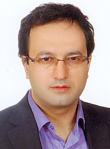Golden Opportunity in New York

The Iranian president’s high-profile attendance at the conference refocused the world’s attention upon the urgency of nuclear disarmament, endowing Iran with the opportunity to underline its nuclear rights, its full compliance with the IAEA, and most importantly its desire to advance serious and substantive talks with the United States. It was also an important opportunity emphasize Iran’s overriding commitment to global nuclear disarmament. President Ahmadinejad’s speech also helped to reassure the international community of the peaceful nature of Iran’s nuclear program.
From the set of proposals Ahmadinejad proposed at the conference, the most important article was perhaps the one demanding the denuclearization of the Middle East. From Iran’s national security perspective, many of the problems and tensions in the region are rooted in Israel’s possession of nuclear warheads and the United States’ double-standard policy in exempting Israel’s nuclear activities from the NPT regulations, while imposing nuclear restrictions on many other countries, namely Iran.
Moreover, the West has cunningly and unfairly tried to tie Iran’s nuclear program to global peace and security, thereby prompting concerns and ruffling the feathers in the international community. From this perspective, the NPT review conference was an opportunity for Tehran to elaborate upon its nuclear positions and educate international public opinion about the aims of Iran’s nuclear program, as well as the necessity of global nuclear disarmament, which has been a concern of intellectual and academic circles since the release of the Russell-Einstein Manifesto in 1955.
Meanwhile, President Ahmadinejad’s attendance at the review conference proves that Iran is interested in initiating dialogue with the United States and endeavors to seize every opportunity to advance the course of dialogue. After the conference, President Ahmadinejad engaged in several interviews with leading media networks and stressed Iran’s interest in advancing direct talks with the United States. By connecting directly to the American public, he managed to effectively preempt the negative and misleading propaganda purveyed by Western officials and the media, claiming Iran’s non-compliance with the IAEA, and he furthermore reiterated Iran’s interest in a uranium swap deal. In a measured tone and phrasing, and not for the first time he stated that Iran would not welcome a new rounds of sanctions and that sanctions would fail to weaken the nation’s determination vis-à-vis the nuclear policy.
Despite the engagement in such important events and activities, Iran’s active participation in international conferences with global agendas should be consistent, innovative, and offer up serious proposals. Iran’s ties with influential actors such as Russia and their nuclear disarmament policies should also be taken into consideration. Moscow considers its nuclear arsenals as a source of prestige and as assuring its global status.
The issue of nuclear disarmament, like platforms urging non-proliferation of nuclear weapons, requires trust-building, particularly when ‘power politics’ and realpolitik still prevail in international relations, and deterrence occupies a central role in states’ defense strategy. As long as ‘power’ and ‘distrust’ remain keywords in defining great powers’ relations, disarmament efforts have little chance to success.
The Iran of 2010 is very different in contrast to past years. With its nuclear program becoming a controversial international issue, Iran should take advantage of all diplomatic and strategic avenues at the international level and express its regional and strategic views, a path taken by all states whose increased sources of national power compel them to be actively present on international scene.
History shows that foresight and initiative-taking by the nation’s leadership could create opportunities in opening up relations between rival states. By means of an active presence on the international scene, President Ahmadinejad aims to pave the way for dialogue and confidence-building with the international community, especially with the United States, a strategic objective, which ultimately serves both parties’ interests.
Kayhan Barzegar is a university professor and director of international affairs at the Center for Middle East Strategic Studies, Tehran

